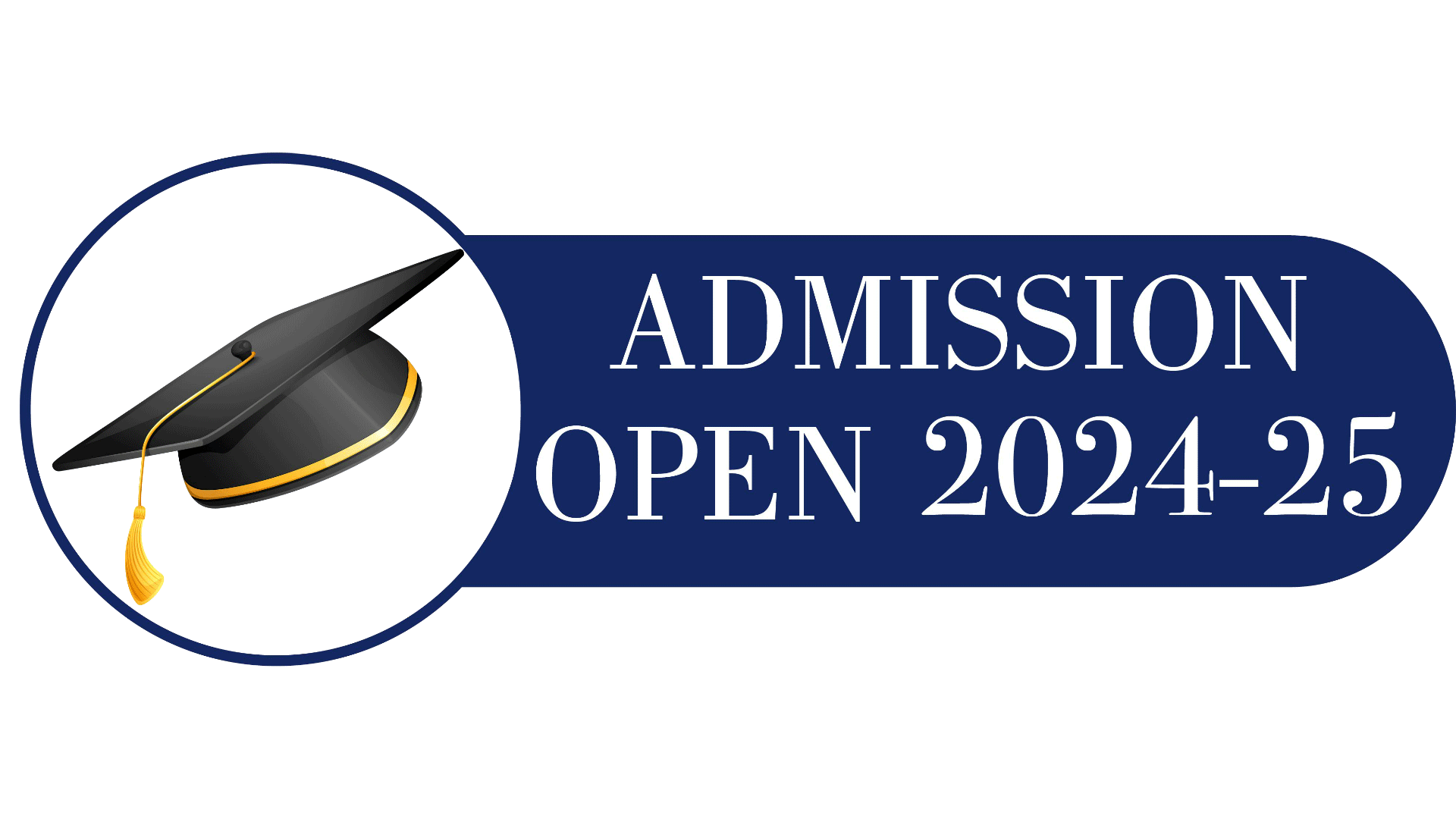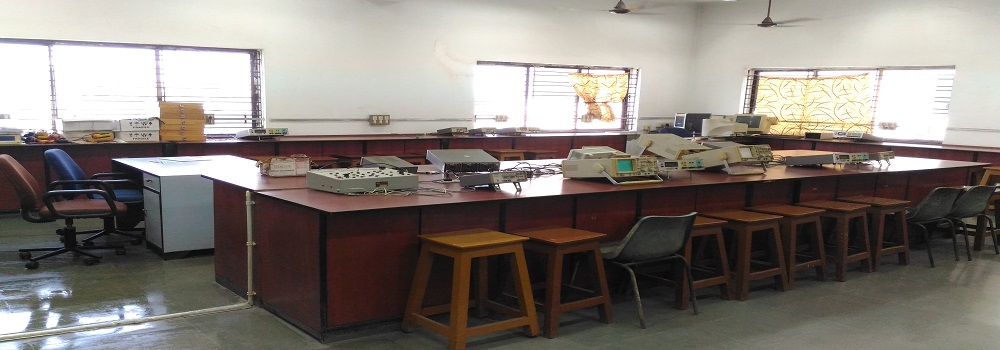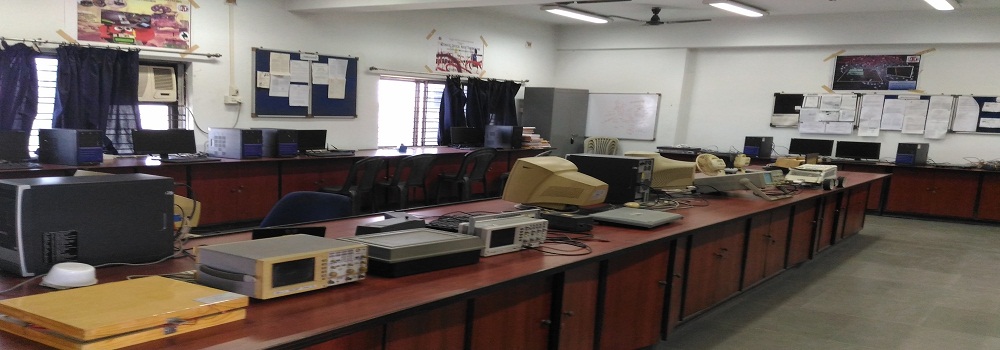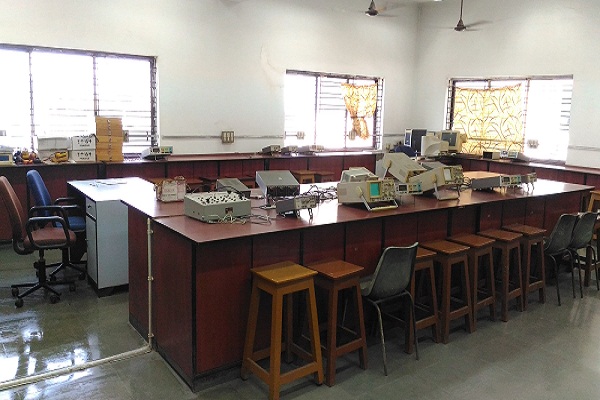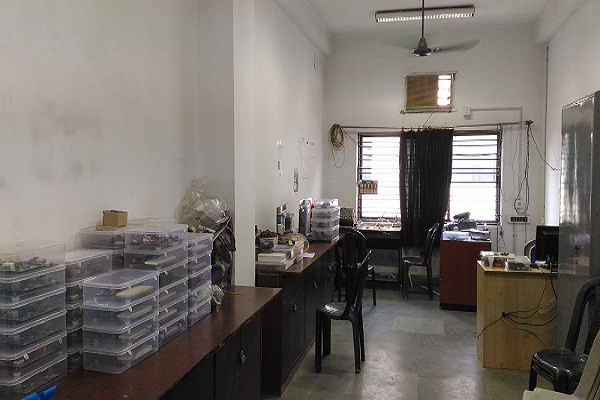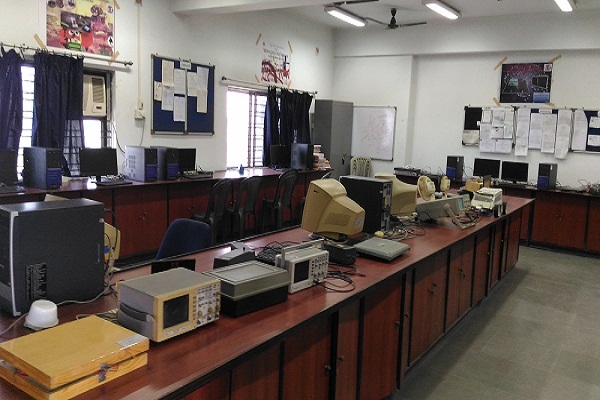Click Here Departmental Website Page
About The Department
Welcome to the website of the Dept. of Electronics and Communication Engineering at MSIT. The main thrust of the department is technological research and education. The faculty members teach a wide variety of core and elective courses for undergraduate students from the engineering departments of the institute. The department has strong research activities in the field of Device modeling, Low power VLSI circuit Design, Communications and Networking, Real Time Embedded Systems, IoT etc. The setting up of the IEEE MSIT Student Branch, IEEE MSIT Electron Devices Society Student Branch Chapter, and IEEE MSIT Communication Society Student Branch Chapter in this department have not only created new opportunities for research collaboration within and across the institute, it has also provided avenues for new research areas for graduated students seeking admission for higher studies after graduation. The departmental faculties are involved in a number of research activities independently, or in collaboration with faculty members from other departments of the reputed Universities like Jadavpur University, MAKAUT, IIEST Shibpur, as part of national or international research networks and partnerships.
The department has special labs like Advance VLSI Lab, Innovation lab, Advance Networking Lab to encourage students to perform innovative projects and advance research works. Many research papers (SCI and reputed Journals, IEEE and non IEEE Conferences) are published by our students on a regular basis. Students are encouraged to take part in National and International innovative competitions. One of our student groups received the 1st runner up prize (USD 5000) in Texas instrument Innovation Challenge 2015 as a result of our constant motivation and guidance. In 2010, one of the groups of ECE Dept. has been awarded as finalist in the “CADENCE DESIGN” organized by CADENCE Bangalore, India. Few student papers have been selected as best papers in IEEE conferences in last 3 years. Teachers and students are motivated to file PATENTS of their research works. Few patents have been filed already by the teachers and students of this department.
The alumni of the department are well placed in academia, NGOs and in government and private sector. We have an Alumni advisory Board consists of Alumni who are now in core hardware industry like MICROCHIP-USA, INTEL-USA, TI, AMD, FUJITSU, WIPRO, TCS, CTS, IBM, INFOSYS, ICICI, GOOGLE, STANDARD CHARTERED, GOOGLE etc and also doing research works/higher study in National/International universities/IITs/IISCs like IISC Bangalore, IIT Chennai, IIT Kharagpur, Arizona State University, Colorado State University, Florida university, Louisiana State university etc. This alumni advisory board provides unique opportunities for aspiring students by sharing their skills and experiences.
The department and its faculty members conduct seminars/workshops in almost every month for the efficacious outputs. As the Dept. of ECE of MSIT grows in stature and quality, we aspire to considerably expand its research and teaching activities in new directions, and welcome all initiatives and support which would help us work towards that goal.
For Admission ECE : 7044598807
Click here for departmental facebook page
Vision
To strive for excellence in education & research in Electronics & Communication Engineering to offer engineering solutions to meet new challenges.
Mission
· To create efficient and competent professionals by imparting quality educations in the field of Electronics and Communication engineering which can contribute to the advancement of science and technology.
· To promote research and development activities in the field of Electronics and Communication engineering, leading to the creation of knowledge and of intellectual property.
· To provide value based education leading to entrepreneurial initiatives toward socio economic development of society.
· To create effective and ethical professionals, capable of accepting new challenges in the emerging field of science and engineering through lifelong learning.
Program Educational Objectives (PEOs)
PEO 1: The graduates shall have a good understanding of the Electronics and Communication Engineering fundamentals for identifying and analyzing real-life engineering problems in communication, automation, and VLSI industries.
PEO2: The graduates will be encouraged in research and innovative approaches for successful career growth in VLSI, communication, embedded and automation industries and blossom into entrepreneurs, scientists, and technocrats.
PEO3: The graduates shall have the expertise in cutting-edge interdisciplinary technology like Data Science, Artificial Intelligence, Image Processing, Machine Learning, and IoT using modern software tools for measurable and impactful contributions that strongly support the organization’s high-level goals.
PEO4: The graduates shall be inculcated with professional ethics, and managerial and communication skills to develop ingenious solutions for the benefit of society and the environment.
Program Outcomes (POs)
Engineering Graduates will be able to:
PO1 Engineering Knowledge: Apply the knowledge of mathematics, science, engineering fundamentals, and an engineering specialization to the solution of complex engineering problems.
PO2 Problem Analysis: Identify, formulate, review research literature, and analyse complex engineering problems reaching substantiated conclusions using first principles of mathematics, natural sciences, and engineering sciences.
PO3 Design/development of solutions: Design solutions for complex engineering problems and design system components or processes that meet the specified needs with appropriate consideration for the public health and safety, and the cultural, societal, and environmental considerations.
PO4 Conduct investigations of complex problems: Use research-based knowledge and research methods including design of experiments, analysis and interpretation of data, and synthesis of the information to provide valid conclusions.
PO5 Modern tool usage:
Create, select, and apply appropriate techniques, resources, and modern engineering and IT tools including prediction and modelling to complex engineering activities with an understanding of the limitations.
PO6 The engineer and society: Apply reasoning informed by the contextual knowledge to assess societal, health, safety, legal and cultural issues and the consequent responsibilities relevant to the professional engineering practice.
PO7 Environment and sustainability: Understand the impact of the professional engineering solutions in societal and environmental contexts, and demonstrate the knowledge of, and need for sustainable development.
PO8 Ethics:Apply ethical principles and commit to professional ethics and responsibilities and norms of the engineering practice.
PO9 Individual and team work: Function effectively as an individual, and as a member or leader in diverse teams, and in multidisciplinary settings.
PO10Communication: Communicate effectively on complex engineering activities with the engineering community and with society at large, such as, being able to comprehend and write effective reports and design documentation, make effective presentations, and give and receive clear instructions.
PO11Project management and finance: Demonstrate knowledge and understanding of the engineering and management principles and apply these to one's own work, as a member and leader in a team, to manage projects and in multidisciplinary environments.
PO12Life-long learning : Recognize the need for, and have the preparation and ability to engage in independent and life-long learning in the broadest context of technological change.
Program Specific Outcomes (PSOs)
The students will be able to
PSO1 Analyze specific engineering problems relevant to electronics and communication engineering by applying the knowledge of basic sciences, engineering mathematics, and fundamentals.
PSO2 Design electronics and communication systems containing electronic devices, embedded systems, software, and hardware using significant analytical knowledge in electronics and communication engineering and allied domains, applying modern tools.
PSO3 Apply the specific knowledge of electronics and communication engineering for environmental, health, safety, and cultural issues.
.
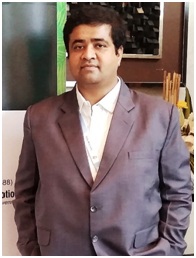
| Name : | Dr. Manash Chanda |
| Designation: | Head of the Department |
| Qualification: | PhD (Engg.) from Jadavpur University, M.Tech in VLSI and Microelectronics from Jadavpur University, B.Tech from KALYANI GOVT. ENGG. CLG. (MAKAUT). |
| Phone Number : |
Welcome from Head of the Department
Welcome
to the Department of Electronics and Communication Engineering (ECE) at MSIT,
Kolkata. The ECE department is one of the oldest and most established department
at MSIT, Kolkata. The department offers B.Tech and M.Tech, programs. Many
faculty members are currently guiding Ph. D students also.
The
vision of the ECE department is to create talented and socially responsible
engineers to make a better India and, in turn, a better world. It will strive
to become a hub of research excellence in cutting edge, state of the art, and
contemporary areas of national and international relevance. The department also
envisions itself as a center of excellence in teaching to create a
well-educated, technically competent, and socially responsible workforce for
meaningful, inclusive, and overall societal development of India and the rest
of the world.
The
mission of the department is to impart world-class training to its
undergraduate and postgraduate students. It plans to create an excellent
national workforce by imparting students a high-quality education, cutting-edge
research exposure, and a world-class innovation ecosystem. Additionally, it
plans to formulate and implement novel teaching mechanisms to provide its
students a holistic exposure to a world-class education. As an outcome, a large
no. of students is currently placed in Google, Microsoft, Fujitsu, Intel, Texus
Instrument, Qualcomm, Synopsys, Microchip, Sankalp Semiconductor, AMD, ARM,
Tata Elxi, Nvidia, Samsung, IBM, CTS, Capgemini, Accenture, Delloite, TCS,
Infosys, just to name a few. Besides, significant number of students have
carried forward their higher studies in leading Institutes like UCB-Berkley,
USA; ASU-Arizona, USA, NUS-Singapore, CSU-Colorado, USA; UF-Florida, USA;
University of Utah, USA; MSU-Michigan, USA; TU-Dresden, Germany, McMaster
University, Canada; IISC-Bangalore, India, Many IITs, to name a few. Several ECE
alumni have made ECE, MSIT proud. Many of them are the members of Alumni
association of the department who are guiding the current final and pre-final
year students to set up their paths for enriched career. The department is also
setting up the research collaboration with reputed Institutes like EPFL, IIT
Kanpur, IIT Kharagpur, Karunya University, Calcutta University and Jadavpur
University toincrease the employability of the students.
The
ECE department has always been well recognized for its excellent teaching
standards in India.Current members of ECE department have published 250 papers,
along with students of ECE department in reputed International journals and
Conferences.Dr. Manash Chanda and
Dr. Swapnadip De have published books
from reputed International publishing houses. Dr. ChandiPani,
along with other faculty members and students of ECE department have
published 5 patents. ECE faculty members have been traditionally contributing
to professional activities both within and outside the Institute. Currently, Dr.Manash
Chanda is serving as Vice Chairman of IEEE EDS Kolkata Chapter. He is also the
member of IEEE Region 10 Conference Quality and Management Committee. Dr.
Swarnil Roy is also serving as the Secretary of the IEEE Solid State Circuit
Society, Kolkata Chapter. Dr. Swapnadip De served IEEE Kolkata Section as
ExComm. Member for 4 years. Several faculties from ECE are currently serving as
Centre Heads within the Institute. Dr. Sudip Dogra is heading the Institution
Innovation Council and Incubation Centre under MSME. Many students have won
prestigious position in National Design contests organized by Texus
Instruments, CADENCE, AICTE etc
ECE
Dept. has founded IEEE MSIT Student Branch, IEEE MSIT Electron Device Society
Student Branch Chapter and IEEE MSIT Communication Society Student Branch
Chapter to coordinate all the technical activities like Conferences, Seminars,
Workshops, Talksetc to make the students technically competent and
professionally viable. As the Dept. of ECE of MSIT grows in stature and
quality, we aspire to considerably expand its research and teaching activities
in new directions, and welcome all initiatives and support which would help us
work towards that goal.
If you have any questions, queries, suggestions, and proposals, please feel free to contact me.
Dr. Manash Chanda
Head, Dept. of ECE,
MSIT
Contact :hod.ece@msit.edu.in
B.Tech.
The department of Electronics and Communication Engineering, abbreviated ECE, is offering an undergraduate engineering degree program since the establishment of the university named 'West Bengal University of Technology' (now MAKAUT) in the year 2001 with a view to offer quality higher education to numerous worthy young fellows as well as to meet the huge demand of highly qualified specialists in the field.
Intake: 60
M. Tech.
The department is also offering postgraduate engineering degree program from the year 2012. The university curriculum is aimed to give theoretical and hands on in the areas of Advances of Electronics Engineering. A post-graduate degree in Electronics and Communication Engineering is a must if students aspire to set himself / herself apart from the anonymous mass of "Electronics professionals" and to assume a leading role in transforming the industry, be it through research, advanced development, teaching, or entrepreneurship.
Intake: 09
M.Tech Syllabus for ECE
Lab Assistant, Dept. of ECE
|
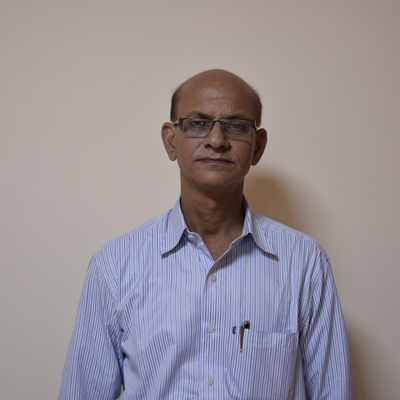
| ||||||||||
|

| ||||||||||
|
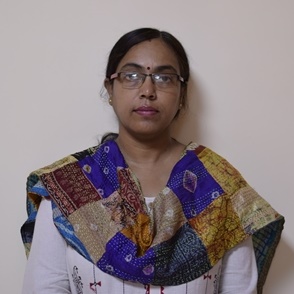
| ||||||||||
|

| ||||||||||
|
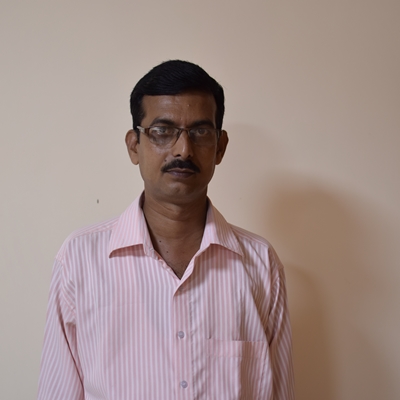
|
List of Publications, Dept. of ECE
2021-2022
- “Design and Implementation of IoT-Enabled Innovative Smart Fan Operating on Real Feel Algorithm Suitable for Smart Homes” by Dogra, Sudip; Chowdhury, Pratik; Misra, Sinjini; Dhar, Swastik; Mukherjee, Srijeet; et al. IUP Journal of Electrical and Electronics Engineering; Hyderabad Vol. 15, Iss. 3, (Jul 2022): 42-52.
- “Design and Implementation of IoT and AI enabled Innovative LPG Cylinder Monitoring System” by Dr.Sudip Dogra, Srijeet Mukherjee, Swastik Dhar, Pratik Chowdhury, Mr. Kamalendu Langal published at International Conference on Emerging allied technologies (ICGREAT) 2022held on 16 th and 17thDecember 2022 at Sage University, Indore. Will be published in Joiurnal.
- A. Bhattacharyya, D. De and M. Chanda, "Sensitivity Measurement for Bio-TFET Considering Repulsive Steric Effects With Better Accuracy," in IEEE Transactions on Nanotechnology, vol. 21, pp. 100-109, 2022, doi: 10.1109/TNANO.2022.3148922.
- A. Bhattacharyya, D. De and M. Chanda, "Temperature Imposed Sensitivity Issues of Hetero- TFET Based pH Sensor," in IEEE Transactions on NanoBioscience, 2022, doi: 10.1109/TNB.2022.3202242
- Amit Bhattacharya, Debasish De, and Manash Chanda, "Sensitivity Measurement for Bio- TFET Considering Repulsive Steric Effects With Better Accuracy," IEEE TNANO, (DOI: 10.1109/TNANO.2022.3148922 ).
- Das, R., Chattopadhyay, A., Chanda, M. et al. "Analytical Modeling of Sensitivity Parameters Influenced by Practically Feasible Arrangement of Bio-Molecules in Dielectric Modulated FET Biosensor". Silicon (2022). DOI: https://doi.org/10.1007/s12633-021-01617-z.
- T. Ganguli, M. Chanda, and A. Sarkar "Impact of Interface Trap Charges on the Performances of Junctionless MOSFET in Sub-Threshold Regime", Computers and Electrical Engineering, Volume 100, 2022, 107914, ISSN 0045-7906, https://doi.org/10.1016/j.compeleceng.2022.107914
- G. Jana, D. Sen, P. Debnath and M. Chanda, "Power and delay analysis of dielectric modulated dual cavity Junctionless double gate field effect transistor based label-free biosensor", Computers and Electrical Engineering, Volume 99, 2022, 107828, ISSN 0045-7906. DOI: https://doi.org/10.1016/j.compeleceng.2022.107828
- Mukherjee, M., Guha, S., Debnath, P. et al. "Analytical Modelling of Dopingless (DL) Impact Ionization MOSFET (IMOS)". Silicon (2022). https://doi.org/10.1007/s12633-022-01882-6.
- Suman Sarkar, Papiya Debnath, Debashis De & Manash Chanda (2022) "A DFT Based Approach to Sense the SF6 Decomposed Gases Using Ni-doped WS2 Monolayer", IETE Technical Review, DOI: 10.1080/02564602.2022.2143916
- Debarati Dey Roy, Pradipta Roy, Manash Chanda, Debashis De,"Ultra-low voltage adenine based gas sensor to detect H2 and NH3 at room temperature: First-principles paradigm" , International Journal of Hydrogen Energy, 2022, ISSN 0360-3199, https://doi.org/10.1016/j.ijhydene.2022.11.040.
- Karmakar, Ananya & De, Arpan & Sen, Dipanjan & Chanda, Manash. (2022). "Design and Investigation of Double Gate Field Effect Transistor Based H2 Gas Sensor Using Ultra-Thin Molybdenum Disulfide". 10.21203/rs.3.rs-1611969/v1.
- Ananya Karmakar, Adrija Mukherjee, Dipanjan Sen and Manash Chanda, "A junctionless dual-gate MOSFET-based programmable inverter for secured hardware applications using nitride charge trapping", Semicond. Sci. Technol., vol. 37, 115013, DOI 10.1088/1361- 6641/ac92a3.
- DC and Analog/RF Performance Comparison of Renovated GAA JLFET Structures Sudipta Ghosh;Abhiroop Jana;Agni Kumar Agnihotri;Shirsha Kundu;Dyuti Das;Subir Kumar Sarkar 2022 IEEE VLSI Device Circuit and System (VLSI DCS)
- Impact of Trap Charge effects on the Performance of 2D material-based FET Sinjini Misra;Swastik Dhar;Ayush Sarkar;Swapnendu Sarkar;Anada Sankar Chakraborty;Swarnil Roy;Sudipta Ghosh 2022 IEEE International Conference of Electron Devices Society Kolkata Chapter (EDKCON)
- DC and Analog/RF Performance Analysis of Gate-Drain Underlapped and Channel Engineered TFET Sudipta Ghosh;Sayan Bose;Wahid Anwar;Madhusree Banerjee;P. Venkateswaran;Subir Kumar Sarkar 2022 IEEE VLSI Device Circuit and System (VLSI DCS)
- Impact of Trap Charge effects on the Performance of 2D material-based FET Sinjini Misra;Swastik Dhar;Ayush Sarkar;Swapnendu Sarkar;Anada Sankar Chakraborty;Swarnil Roy;Sudipta Ghosh 2022 IEEE International Conference of Electron Devices Society Kolkata Chapter (EDKCON)
- A super Threshold Compact Silicon Neuron Circuit for Different Neuron Dynamics Suitable for Spiking Neural Network Sayantan Samanta;Koushik Naskar;Souvanik Pal;Suman Mallik;Sudipta Ghosh;Swarnil Roy 2022 IEEE International Conference of Electron Devices Society Kolkata Chapter (EDKCON)
- Ghosh, S., Venkateswaran, P. and Sarkar, S.K., "Analysis of circuit performance of Ge-Si hetero structure TFET based on analytical model", Circuit World,ISSN: 0305-6120. https://doi.org/10.1108/CW-08-2020-0175, 2021.
- S. Roy, G. Jana, & M. Chanda, “Analysis of Sub-Threshold Adiabatic Logic Model Using Junctionless MOSFET for Low Power Application”. Silicon (2021). https://doi.org/10.1007/s12633-020-00870-y
Book and Book Chapter:
- Amit Bhattacharyya,Manash Chanda and Debashis De, "Dielectrically Modulated Bio-FET for Label-Free Detection of Bio-molecules " Published Book chapter in Modern Techniques in Biosensors, pp. 183-198 , 2021
- M. Chanda, "Design of Microcontroller Based Embedded Water Level Sensor" (ISBN 978-3- 8473-0681-8) Publisher: Lambert Academic Publishing, a trademark of: Omni Scriptum GmbH & Co. KG, Heinrich- Böcking-Str. 6-8,66121, German, www.lap-publishing.com
- M. Chanda, A. S. Chakrabarty, “Reversible Logic Based Ultra Low Power Arithmetic Logic Circuit Design", ISBN 978-3-659-53914-5,Publisher: Lambert Academic Publishing, a trademark of: Omni Scriptum GmbH & Co. KG, Heinrich- Böcking-Str. 6-8,66121, Saarbrücken, German, www.lap-publishing.com
- Swapnadip De, Manash Chanda, Chandan Kumar Sarkar “Channel And Gate Engineered Double Gate MOSFET" (ISBN 978-3-659-56479-6). Publisher: Lambert Academic Publishing, a trademark of: Omni Scriptum H & Co. KG, Heinrich- Böcking-Str. 6-8,66121, German, www.lap-publishing.com.

